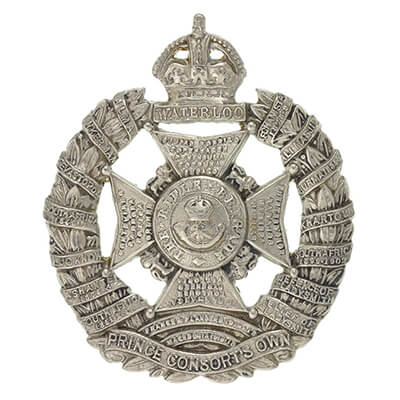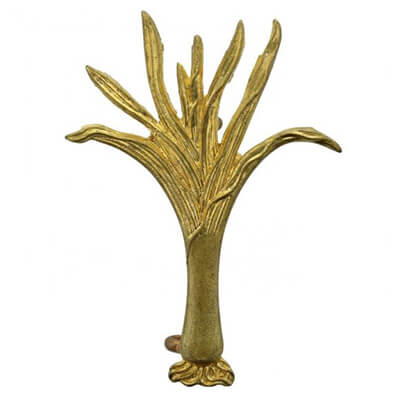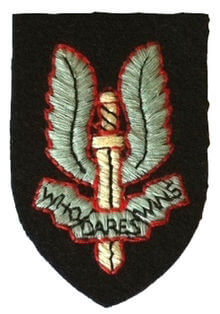| Page Created |
| February 5th, 2023 |
| Last Updated |
| January 15th, 2024 |
| Related Pages |
| British Biographies Special Air Service Biographies Allied Biographies Axis Biographies |
| John Steel “Jock” Lewes |
 |
| Rifle Brigade (The Prince Consort’s Own) |
 |
| Welsh Guards |
 |
| Special Air Service |
 |
| Biography |
John Steel “Jock” Lewes is the co-founder of the British Special Air Service (SAS) during World War II and a highly decorated soldier known for his bravery, strategic thinking, and leadership abilities. Born on December 21st, 1913, in
Calcutta, Bengal, British India, Lewes grows up with a passion for adventure and a thirst for knowledge. He is educated in England, where he develops a deep appreciation for the arts and an unwavering commitment to his country.
In 1940, Lewes joins the British Army and is soon deployed to the Western Desert, where he serves as a reconnaissance officer. It was there that he meets David Stirling, a young lieutenant who was to become a close friend and collaborator. The two men share a vision for a new type of military unit that would operate behind enemy lines, and in 1941 they found the SAS.
Lewes was one of the first members of the SAS and quickly establishes himself as one of its most skilled operators. He is known for his cunning, determination, and ability to improvise in the field. He also playes a key role in the development of the SAS’s tactics, including the use of jeeps and the establishment of long-range patrols.
During the war, Lewes sees action in many of the SAS’s most daring raids, including the destruction of enemy aircraft on the ground and the disruption of enemy supply lines. He is awarded the Distinguished Service Order (DSO) and the Croix de Guerre for his bravery and leadership.
However, Lewes’ greatest contribution to the SAS came not from his daring raids, but from his innovative thinking and leadership abilities. He is a visionary who sees the full potential of the SAS as a military unit and works tirelessly to develop its capabilities. He is instrumental in the establishment of the SAS’s training programs and is a key figure in the development of its airborne and amphibious capabilities.
In December 1941, Lewes takes part in an SAS/LRDG raid on Axis airfields in Libya. The raiders return to Allied lines, but their vehicles are repeatedly attacked by Italian and German aircraft. On December 30th, 1941, as they fight back, Lewes is reportedly hit in the thigh by a 20mm cannon round and dies at the scene of the attack.
In memory of Lewes’ sacrifices, he is commemorated on the Alamein Memorial, which honors the thousands of Commonwealth soldiers who fought and died in the North African desert campaign. Lewes’ legacy lives on, inspiring future generations of special forces soldiers to continue to serve with courage, innovation, and dedication.
